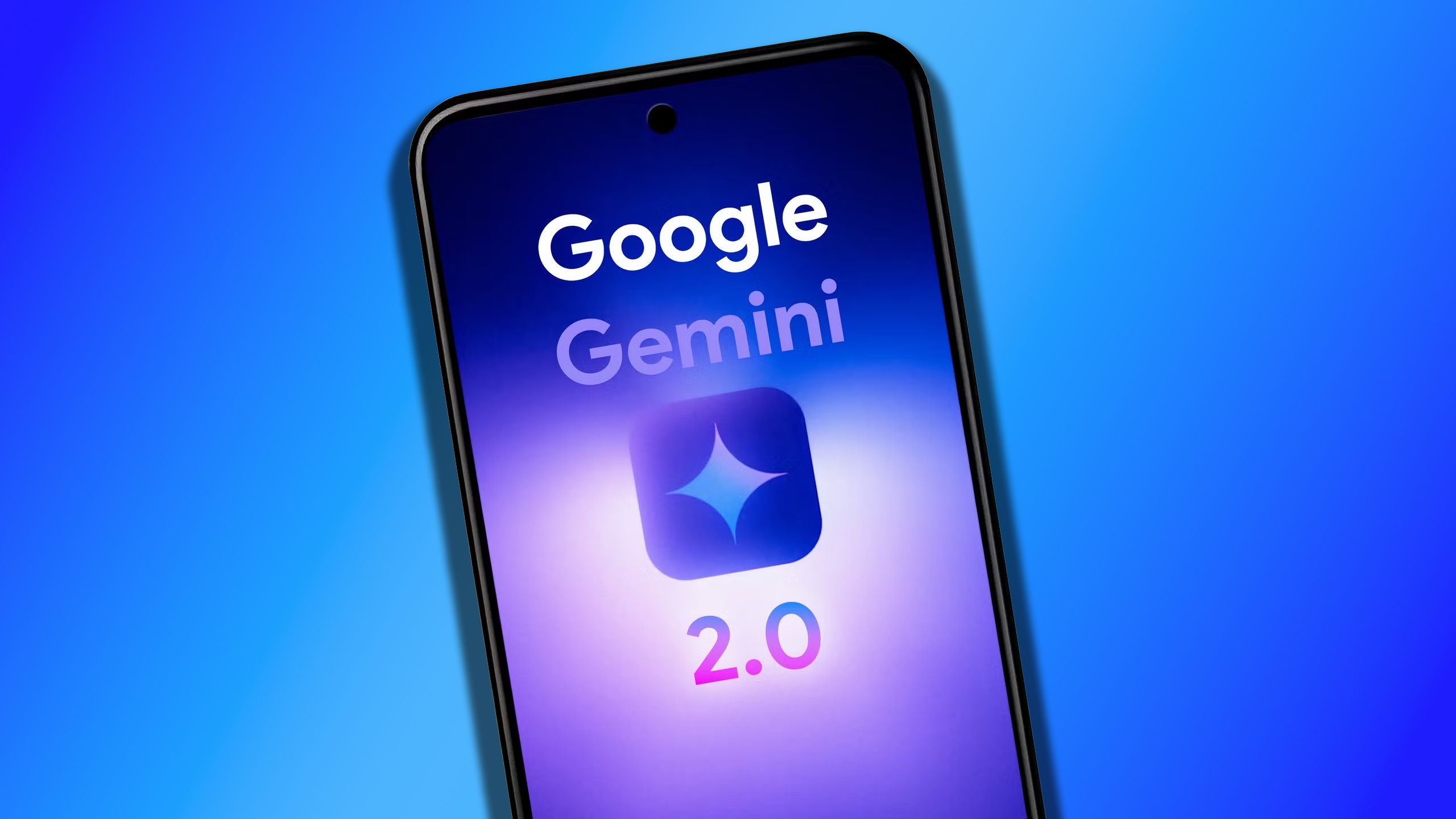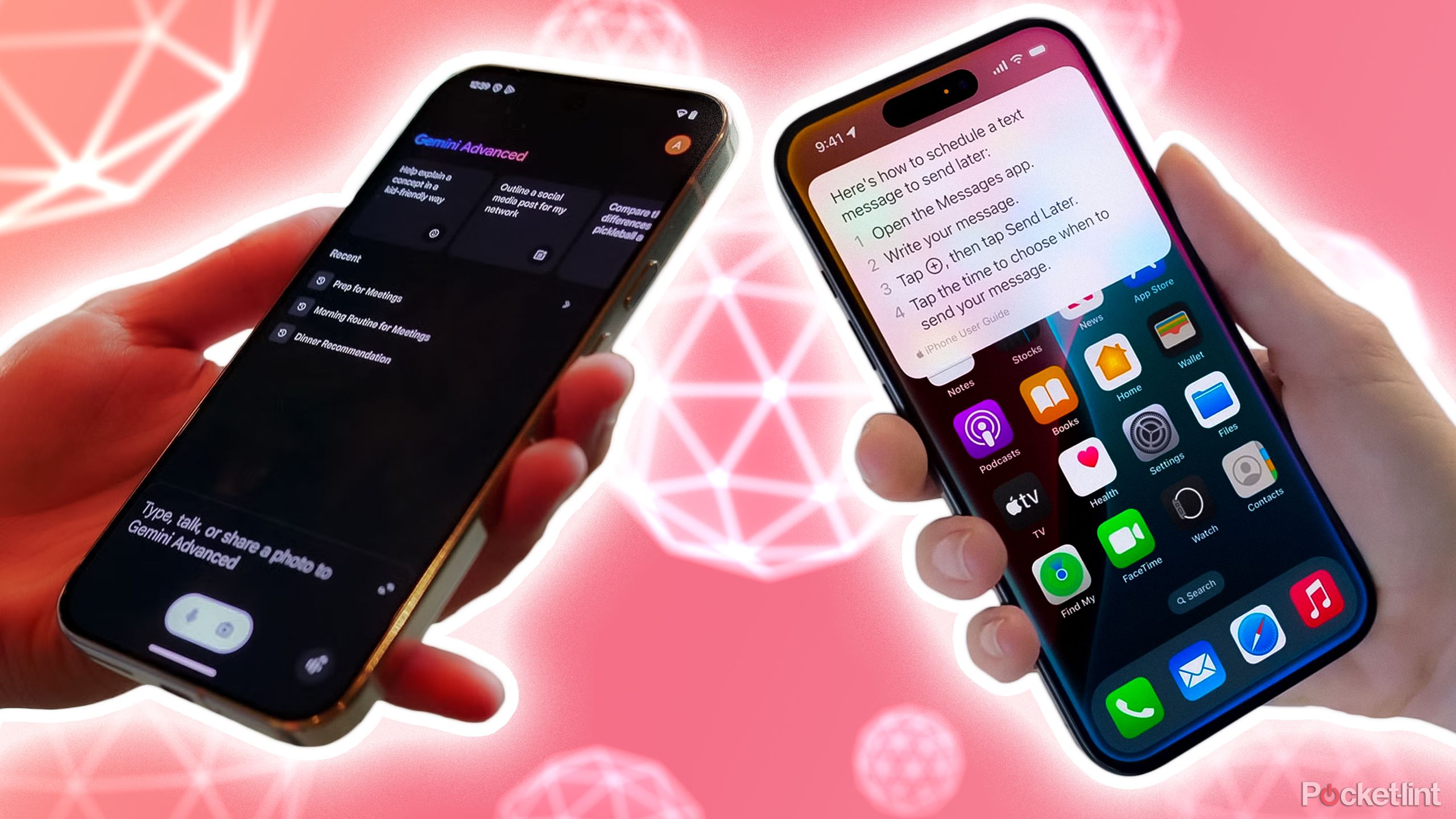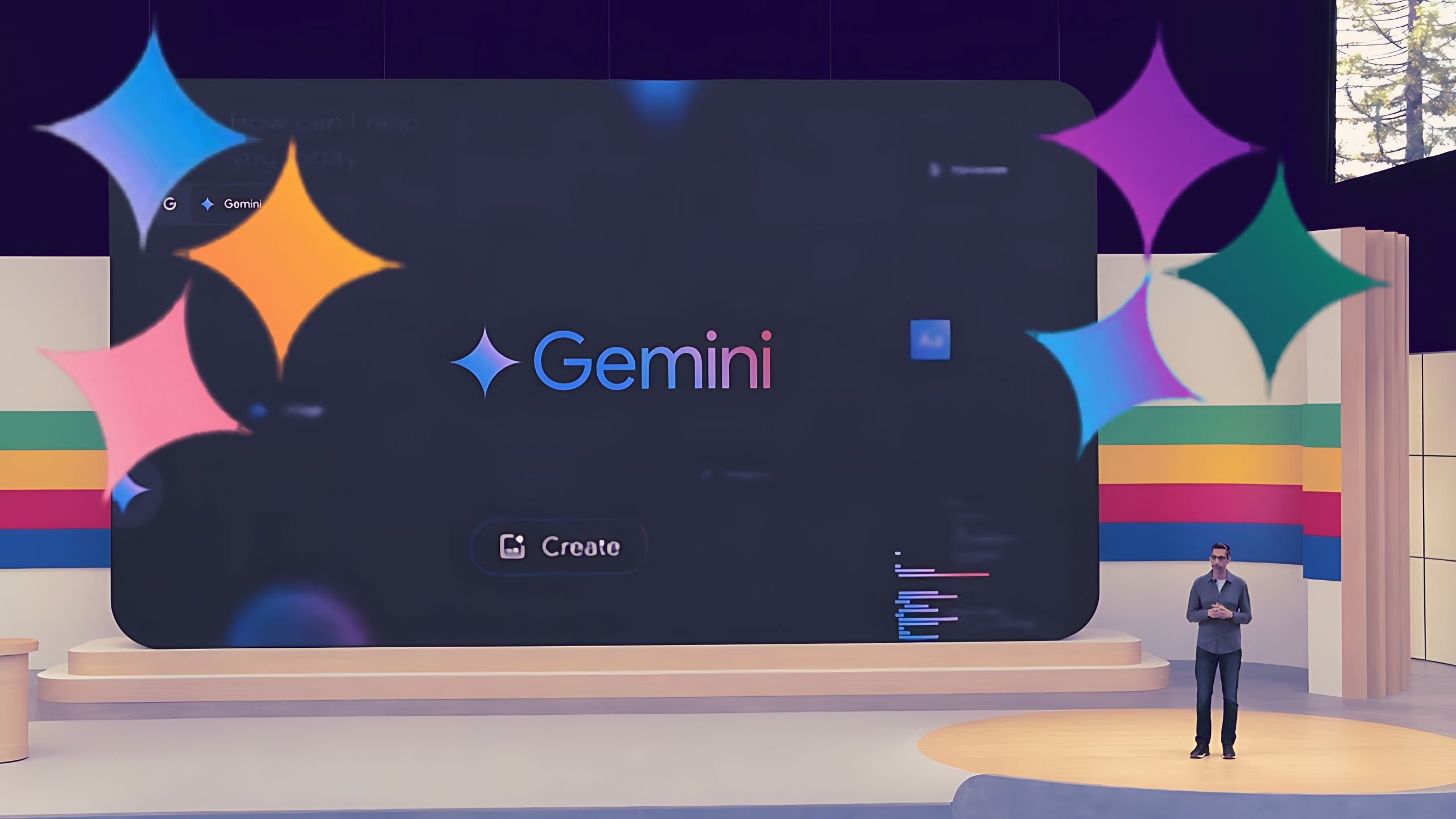Summary
- Google has just introduced a slew of new Gemini app features, further integrating the AI system into its suite of first-party apps.
- While Google goes from strength to strength, Apple is playing a game of catch-up in the AI arena.
- After some initial concern, Google appears to now be solidifying its position as an AI tech leader in the US.
Google has just announced an all-new wave of Gemini features, as well as a number of updates to its existing arsenal of artificial intelligence-powered tools. Most prominently, Gemini is expanding its in-app reach with new contextual awareness capabilities, which the company refers to as Gemini with personalization.
“Today, we’re making big upgrades to the performance and availability of our most popular Gemini features, and adding a new feature that will make Gemini even more personal and helpful,” says Google in a blog post.
Gemini with personalization is the umbrella term for the AI system’s newfound ability to connect with various Google apps, and to deliver context-aware responses. Starting with Google Search history, and on an opt-in basis, you’ll soon be able to have Gemini analyze your history and deliver you with enhanced chat prompt results on the fly.

Related
See what Google is ‘thinking’ with new Gemini update
Google is rolling out a number of updates for Gemini 2.0 and making its new ‘reasoning’ model available for free to users in the Gemini app.
This more personalized and user-aware AI feature is experimental in nature, and is powered by Google’s new Gemini 2.0 Flash model. Presumably, additional in-app capabilities will arrive over time across other first-party Google apps and services.
Google’s advanced Deep Research AI query system is also being improved upon, with an under-the-hood upgrade to the experimental Gemini 2.0 Flash Thinking model. Soon, when browsing the web via Google, Gemini will show in-line results as it solves research tasks and analyzes data in real time.
Google’s advanced Deep Research AI query system is also being enhanced.
The underlying 2.0 Flash Thinking model is being bolstered with updated models, too — Google says that performance has been improved, with more advanced reasoning capabilities to boot.
Lastly, the service is also receiving some love: Gemini is now better able to understand the context of your photo library, which will hopefully make finding your memories less of a hassle.
Google says that these new Gemini AI features will begin rolling out in the coming weeks, and that they’ll be made available to all users and in over 45 separate languages.

Google Gemini
Gemini is Google’s premier AI assistant app for the Android operating system that can provide text responses to questions, generate and analyze images, and is now available on iOS.

Related
AI wars: Is Gemini or Apple Intelligence the smarter choice?
Gemini and Apple Intelligence are both likely available on one of your devices, but which one is better?
Google’s AI ambitions revel in an Apple Intelligence world
Aside from the damage done to Apple’s reputation, the company’s AI woes help cement Google’s position as an industry leader
Back when Microsoft made headlines for partnering with OpenAI and incorporating ChatGPT technology into the Windows Copilot experience, Google was reportedly caught with its pants down. The search giant scrambled accordingly, accelerating its transition from the Google Assistant to Gemini, and rebranding its Bard tech stack in the process.
Over the course of several months, Google has seemingly climbed its way back to the top of the AI food chain. The company’s frequent and iterative update cadence when it comes to its Gemini AI feature set is rather impressive, at least on the surface. The technological underpinnings needed to create advanced AI models are staggering, and the company appears to be at the top of its game.
Aside from some serious privacy concerns and controversies surrounding its Recall feature for Windows 11 — which has yet to be released publicly — Microsoft appears to be in a pretty good place with regard to AI, too.
…cracks are starting to show in Apple’s battle armor.
Apple, another major tech industry behemoth, can’t say the same, however. The company appears to be struggling to keep up in today’s big-tech AI arms race, having recently confirmed the delay of its more personalized and advanced Siri assistant.
With other companies hungry for a slice of the AI pie, and with shareholder pressure undoubtedly at a fever pitch, cracks are starting to show in Apple’s battle armor.
Many are lampooning the company’s AI endeavors, describing them as inadequate, and complaining that the entire Apple Intelligence suite is underbaked. Many on social media are pointing out that Apple’s various ad campaigns paint an inaccurate picture, accusing Apple of engaging in false advertising.
The most recent beta builds of the company’s upcoming software releases even go as far as to remove reference to the amount of storage space taken up by Apple Intelligence, which doesn’t scream confidence in the slightest.
In a sense, Apple has backed itself into a corner: its historical focus on user privacy makes it impossible for the company to scrape the data of its users without ferocious pushback. The training of large language models (LLMs) used for generative and agantic AI purposes requires a compromise in user privacy, and Google is capitalizing on having already ripped the data tracking bandage off many years ago.
It increasingly feels as though Apple Intelligence and Siri are both barely treading water.
It increasingly feels as though Apple Intelligence and Siri are both barely treading water. Google and its ever-increasing portfolio of Gemini AI technologies, by contrast, appear to be traveling upstream via jet ski. I’ll be curious to see whether Apple can ultimately circle its AI square, or whether Google, Microsoft, OpenAI, and others will leave Apple fighting for table scraps in just a couple of years.

Related
11 annoying tasks Google Gemini will soon handle for you
Gemini 1.5 Pro will soon be able to answer questions about the world around you using video, among other key updates from Google I/O.






